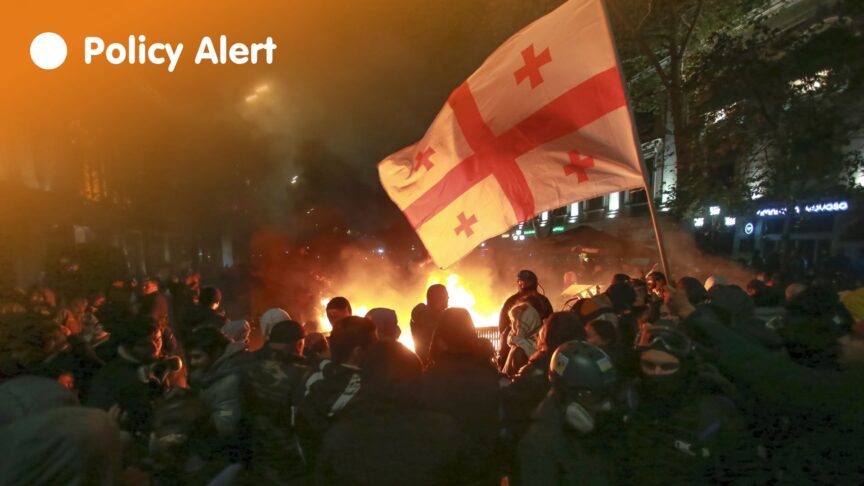Dead-end pragmatism: Germany’s Russia strategy after Merkel
Berlin has no will to rethink its long-held assumption that it can somehow improve Europe-Russia relations by engaging with Moscow from a position of weakness and betting on the benefits of long-term economic ties
For years, Germany, and particularly Chancellor Angela Merkel, has been depicted as the bedrock of European policy and sanctions on Russia. Yet events in recent weeks have cast new light on the inconsistency of German political elites’ stances on the east – suggesting that, after Merkel’s departure, Berlin will have a difficult time with the topic.
Soon after Armin Laschet was elected as the new leader of Germany’s Christian Democratic Union (CDU) and hence most likely successor to Merkel, a debate sprang up about his approach to foreign policy. Some of Laschet’s past statements suggest sympathy for the Putin and Assad regimes and their foreign policy, while he has heavily criticised the United States and the United Kingdom, and vocally defended the Nord Stream 2 pipeline. His sympathy for France causes further concern in eastern Europe, where Germany is widely regarded as a counterweight to Paris and, in particular, President Emmanuel Macron’s attempts at outreach to Moscow. As foreign policy played little to no role in the campaign that preceded the CDU vote, the debate about Laschet’s foreign policy only got going once he had been elected as party leader.
While Laschet tried to brush up his image by criticising the Russian government for jailing opposition leader Alexei Navalny, one may still wonder how much his ideological disposition will affect his foreign policy stance if he becomes chancellor. What is known of his political priorities suggest that he will put jobs and the economy first, and will treat foreign policy as a means of supporting domestic growth. For decades, German foreign policy has been plagued by a failure to address the security implications of trade and investment relations with Russia and China, as well as resilience deficits, particularly in the areas of defence, counter-intelligence, and financial oversight – as was painfully exposed by the Wirecard scandal. Laschet seems unlikely to change things for the better.
There have long been several major flaws in Germany’s view of its relationship with Russia: Berlin’s calls for further talks with Moscow, which come whenever Russia makes the headlines, ignore the fact that there is already an abundance of dialogue between the Kremlin and various European leaders – it is just that this dialogue produces no results. A minority of experienced German lawmakers who support more sanctions, military deterrence, and containment do not call for an end to dialogue as such, but are aware that increasing pressure on Moscow would signal that Europeans were serious about their demands. Only then could they expect to make progress on issues of substance.
The EU has nothing to offer and nothing to threaten. Why should the Kremlin listen?
Germans – along with the French and other Western Europeans – often push to explore possibilities of “selective engagement” with Moscow and cooperation in areas of “common interest”. However, they misjudge the Kremlin’s willingness to cooperate on issues that matter only to the European Union, be it improving European security or implementing climate policy. Furthermore, Europe has no transactional leverage over Moscow. For economic reasons, the EU does not consider imposing hard sanctions on Russia. Moreover, Europe is weak militarily, European intelligence and counter-intelligence is no threat to Russian covert operations in Europe or its neighbourhood, and the EU’s common foreign policy on its eastern neighbourhood so weak as to be easily derailed by military force. In other words, the EU has nothing to offer and nothing to threaten. Why should the Kremlin listen?
Josep Borrell, the EU’s high representative for foreign and security policy, recently travelled to Moscow to explore options for selective cooperation. Unsurprisingly, he returned empty-handed. Worse, Borrel was humiliated by Russia’s decision to expel diplomats from Germany, Poland, and Sweden during his visit – to reinforce the point that Moscow’s internal affairs are none of the EU’s business. Borrell’s visit was not a failure because of bad diplomacy or a lack of preparation by the high representative – as some commentator suggested – but because the whole mandate for the trip was based on a misguided assumption: that Russia would somehow have an interest in alignment with European structures and norms. The failure of the visit will trigger yet another round of discussions on how to deal with Moscow. Berlin has no will to rethink its long-held assumption that it can somehow improve Europe-Russia relations by engaging with Moscow from a position of weakness and betting on the benefits of long-term economic ties. But this approach is increasingly rare in Europe.
The quick dismantling of Merkel’s Russia policy in her party may be surprising to foreign audiences: after all, she staunchly defended sanctions in the European Council and dismissed other countries’ desires to strengthen economic ties with Moscow. But things look different at home. In the past 16 years, she has centralised all important foreign policy decisions in the chancellery. Unfortunately, Merkel has also seen off every intellectually capable contender in her own party over the past decade. And her personal indifference to security and defence matters has hardly helped foster a sustainable domestic consensus on how to deal with Moscow or on the stakes for European security.
So, the German debate on Russia and European security will return to its state in 2005, underestimating the pace at which the world has changed. When Laschet describes himself as a “pragmatist”, he is right in contemporary German terms: he wants to find a minimum common ground for mutually beneficial engagement. However, this “pragmatism” will hardly work with powers that think in terms of coercion and dominance, are ready to weaponise all sorts of relations in line with their goals, and perceive convergence with European structures and norms as a threat rather than an opportunity. Therefore, “pragmatism” failed in the past and is destined to fail in the future.
Meanwhile, many in the expert community and the international press place their hopes in the ascent of the German Green Party, whose leadership’s foreign policy agenda is more in line with their expectations. But it is too early to anticipate a deeper change in German foreign policy. While Germany’s party system is undergoing a fundamental shift, one should not underestimate the persistence of “pragmatism” within all major parties and the bureaucratic apparatus.
Foreign policy issues will only play a minor role during the election campaign and coalition negotiations. While foreign policy matters in the experts’ bubble, it does not matter in the pollical competition. At the end of the day, any coalition government will find compromises on the lowest common denominator, one that is unlikely to satisfy any of them. In this sense, the only thing that seems to be predictable is that Germany after Merkel will be less stable in its foreign policy, and even less reliable.
The European Council on Foreign Relations does not take collective positions. ECFR publications only represent the views of their individual authors.



